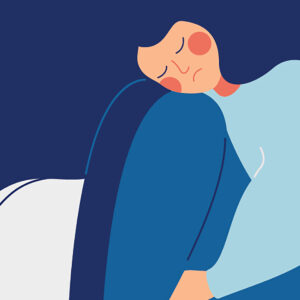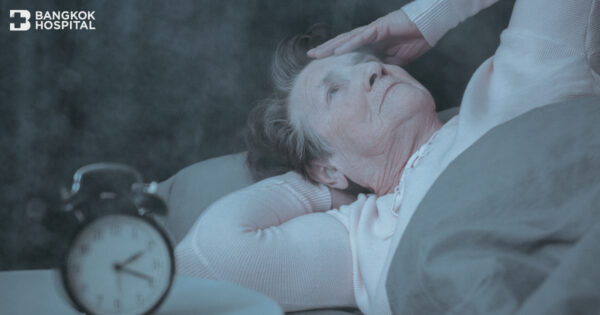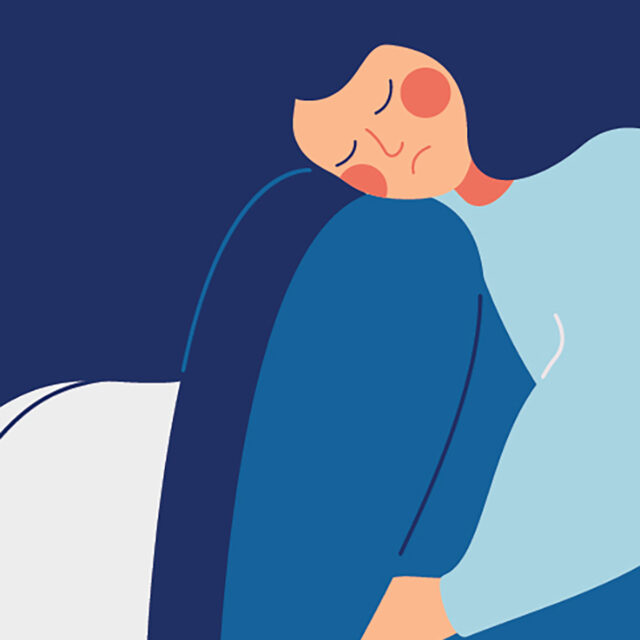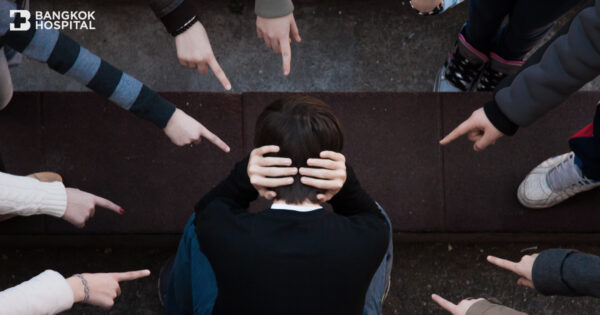Considered one of common sleep myths, people misunderstand that the elderly usually encounter poor sleep quality as they age. Despite aging is connected to numerous health issues, including sleep difficulties, in fact, seniors can maintain their good sleep habit which is a fundamental part of promoting overall health. In order to address the individual needs of older adults, it is important to understand the relationship between aging and sleep.
Sleep patterns in the elderly
Due to the alterations in the body, such as the disruption of biological clock as well as hormonal and metabolic changes, it becomes quite common for older adults to experience certain issues related to their quality and duration of sleep. As we age, total sleep time is slightly decreased. Older people wake up more often each night because they spend less time on deep sleep. However, they should be able to resume their sleep after being awake at night. Interestingly, elderly men are more likely to experience trouble sleeping. Other factors affecting sleep in the elderly include certain medical illnesses, the need of urination at night (nocturia), certain medications, anxiety, discomfort from chronic conditions, inappropriate surrounding environment, insufficient exposure to daylight and a lack of daytime activities.
How does aging affect sleep?
Some people might not experience sleep issues until they reach the elderly stage when all internal factors are profoundly altered due to the aging process. Quite often, physical or emotional stress caused by major events in life bring about sleep disorders. Excess worry and intense fear as well as anxiety accompanied by the muscle stiffness stimulate a certain part of the brain that controls sleeping, resulting in poor sleep quality and discomfort. In fact, sleep deprivation can potentially provoke confusion and other mental changes. Eventually, long-term sleep disorders develop even though worry and distress have been resolved.
Medical conditions that affect sleep in the elderly
Sleep disturbances in the elderly can be a result from these following medical conditions. Once any warning sign of sleep problems arises, medical attention must be immediately sought.
- Obstructive sleep apnea
- Dementia
- Cardiovascular disease
- Emphysema
- Neurovascular disease
- Gastroesophageal reflux disease (GERD)
- Parasomnia involving unusual physical events or experiences, e.g. abnormal movements or talk that disrupt sleep
- Restless legs syndrome
- Depression
- Anxiety and so on
Moreover, long-term irregular sleep schedule may contribute to other health issues, including excess stress, tiredness or fatigue during the day, irritability and moodiness. In addition, it can substantially diminish memory and cognitive function while increasing the risk of falls in the elderly which might be severely serious if appropriate care cannot be provided in a timely manner.
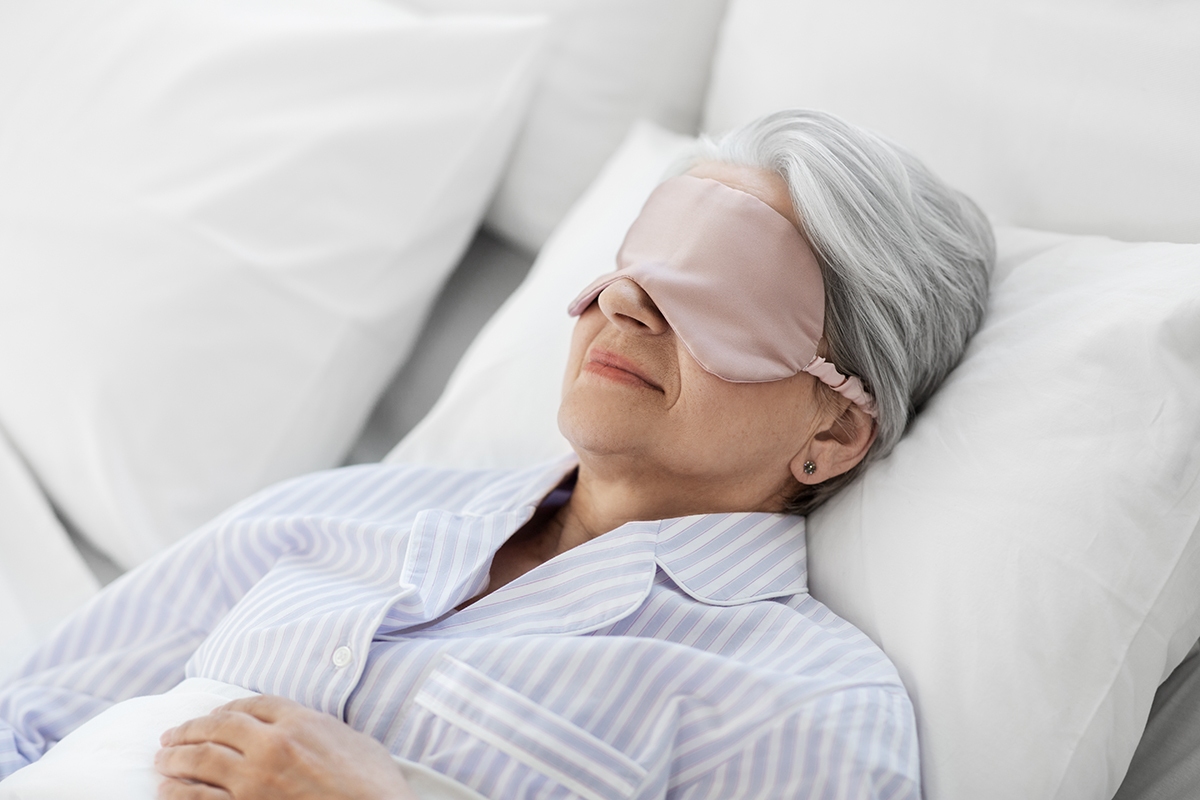
Healthy sleep tips for seniors
These tips can help the elderly cope with insomnia and overcome age-related sleep problems:
- Keep a regular sleep schedule and avoid sudden changes in sleep schedules.
- Do not try to resist if sleep latency is longer than 20 minutes. If you cannot fall asleep within 20 minute, instead of trying to continue sleeping, get up and do some relaxing activities, e.g. reading a book. Once feeling sleepy again, go back to sleep.
- Preserve the bed for resting or sexual activity purposes only.
- Avoid daytime napping. If not possible, try to take a short daytime nap, 10-15 minutes within 8 hours after getting up.
- Exercise regularly. Older people who exercise regularly fall asleep faster, sleep longer with a better quality of sleep. However, it is recommended to avoid exercising for at least 4 hours before bedtime.
- Refrain from caffeine-containing beverages, such as tea, coffee and soft drinks.
- Limit cigarette smoking in the evening as smoking has shown to be associated with sleep disturbance, especially prolonged sleep onset latency.
- Avoid overeating or heavy meals at least 4 hours before going to bed.
- Limit alcoholic drinks at least 4 hours before going to bed.
- Stay relaxed 1-2 hours before going to bed by, for instance, reading a book, taking a warm bath, praying and meditating while avoiding substances that discourage sleep.
- Do not take sleeping pills without prescription or supervision of the psychiatrist since these medicines largely deteriorate memory and cognitive functions. Additionally, they can strongly induce addiction, abuse and tolerance while suppressing the symptoms of a wide range of sleep disorders. More importantly, serious side effects of sleeping pills are an increased risk of falls and accidents, especially in the elderly.
As soon as any abnormal sign indicating sleep issues in the elderly arises, it is crucial to seek an immediate medical attention from the expert specialist. Not only sleep disturbance, but aging is also tied to a numerous health issues that need to be timely addressed, allowing effective treatments before the conditions worsen. At Mental Health Rehabilitation and Recovery Center, Bangkok Hospital Headquarters, we offer a holistic care conducted by experienced geriatric psychiatrist in which both physical and emotional aspects are taken into consideration.


